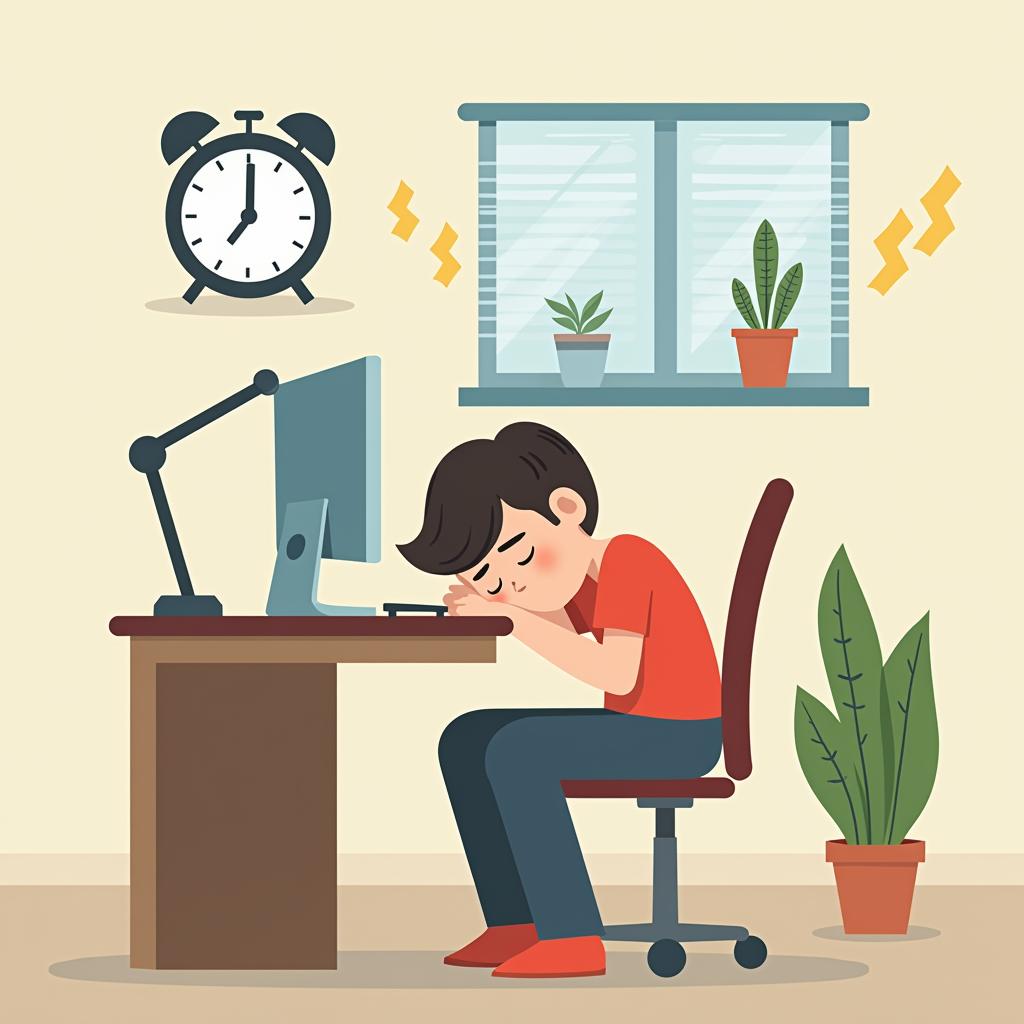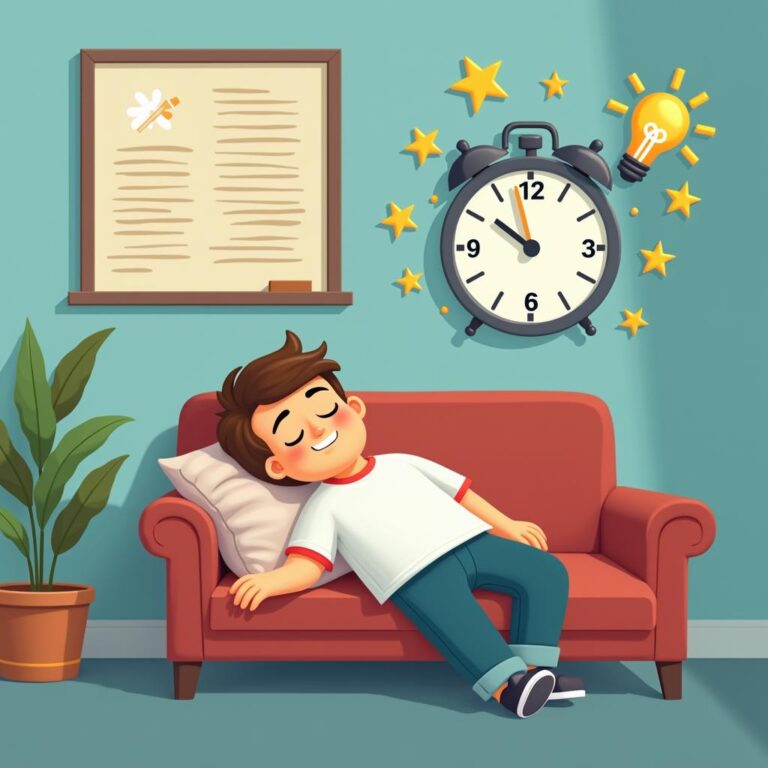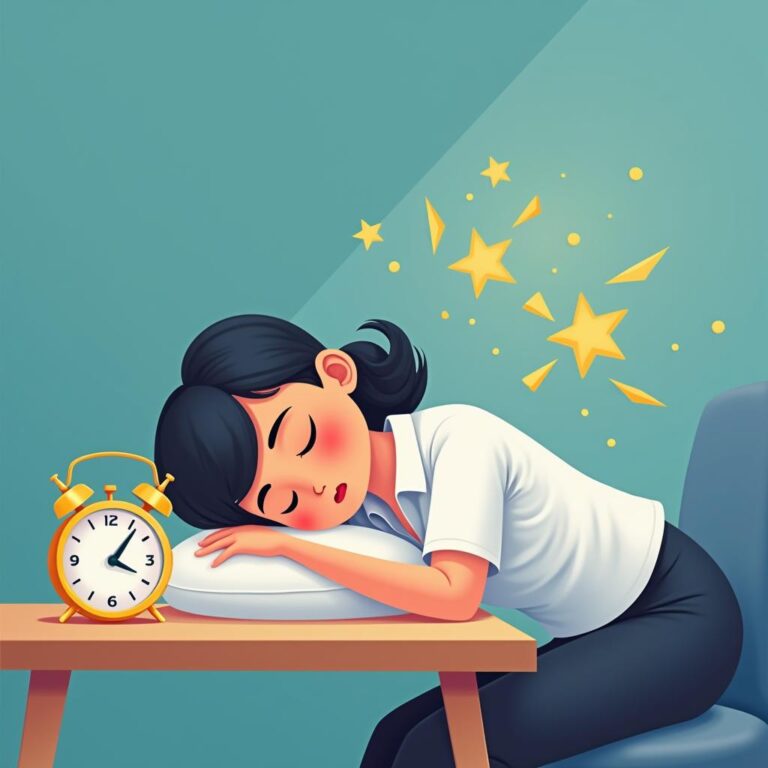In today’s fast-paced world, maintaining optimal focus can often feel like a daunting task. But what if there were a simple solution that could enhance your concentration and productivity? Enter the power nap. These short, rejuvenating bursts of sleep can do wonders for your mental acuity and overall well-being. However, the key to reaping these benefits lies in determining the best power nap duration for better focus.
What is a Power Nap?
A power nap is a brief sleep session that usually lasts between 10 to 30 minutes. Unlike a full sleep cycle, which typically lasts 90 minutes, a power nap is designed to help you recharge your energy and improve your focus without the grogginess that often accompanies longer naps. The essence of a power nap is to take just enough time to refresh your mind and body.
Ideal Power Nap Duration
The best power nap duration to improve focus generally falls within the 10 to 30-minute range. Here’s a breakdown of different durations and their benefits:
- 10-Minute Power Nap: A 10-minute nap is perfect for a quick refresh. It essentially allows your brain to reboot and helps to enhance alertness and concentration without entering deep sleep. It’s great for when you’re in a rush but need a mental boost.
- 20-Minute Power Nap: This duration is often considered optimal for power napping. A 20-minute nap allows you to experience light sleep, which can improve motor performance, alertness, and cognitive function. This duration keeps you in the lighter stages of sleep, minimizing the risk of sleep inertia.
- 30-Minute Power Nap: This option is slightly longer and may lead you towards deeper sleep. While it can help alleviate sleep pressure and provide some benefits, you might experience grogginess when waking up, which can temporarily hinder your focus.
Benefits of Power Napping
Taking a power nap can have profound effects on your body and mind. Here are some of the primary benefits:
- Enhanced Alertness: Power napping helps clear the brain’s short-term memory and refreshes one’s cognitive abilities, significantly boosting alertness.
- Improved Mood: A quick nap has been shown to elevate mood and lower stress levels. This translates into a more positive outlook and better focus on tasks.
- Increased Productivity: Studies suggest that individuals who take power naps often complete tasks more quickly and effectively than those who don’t.
- Boosted Creativity: A short sleep can enhance creative problem-solving and brainstorming, as it helps to facilitate new connections in the brain.
Tips for Taking an Effective Power Nap
To maximize the benefits of your power nap, consider the following tips:
- Choose the Right Time: The ideal time for a power nap is in the early afternoon, typically between 1 PM and 3 PM. This coincides with the dip in energy levels that most people experience post-lunch.
- Create a Comfortable Environment: Find a quiet and comfortable space where you can relax. A dark room or an eye mask can help block out distractions and ensure bonny comfort.
- Set an Alarm: To avoid oversleeping, set an alarm for your preferred nap duration. This will help you stick to the power nap duration you’ve chosen.
- Relax Before Napping: Engage in a few minutes of deep breathing or mindfulness to calm your mind. This will help you fall asleep faster and make the most out of your nap time.
Power Napping and Sleep Architecture
Understanding your body’s sleep architecture can help you tailor your power nap for better focus. Sleep is structured in cycles that include light sleep, deep sleep, and REM (Rapid Eye Movement) sleep:
- Light Sleep: This is where relaxation occurs, and is ideal for a power nap. You want to aim to stay within this stage to feel refreshed upon waking.
- Deep Sleep: Entering deep sleep during a power nap can lead to grogginess. It’s advisable to avoid naps longer than 30 minutes to minimize this risk.
- REM Sleep: REM sleep is where most dreaming occurs and is critical for memory consolidation. A full sleep cycle is necessary for this stage, which typically can’t be achieved during a power nap.
Conclusion
In conclusion, the best power nap duration for better focus generally falls between 10 to 20 minutes. By strategically incorporating these short sleep sessions into your daily routine, you can reap the benefits of enhanced alertness, improved mood, and increased productivity. Remember to create a conducive environment and set an alarm to make the most out of your power naps. Embrace the power of a quick recharge, and watch as your focus and creativity thrive.







